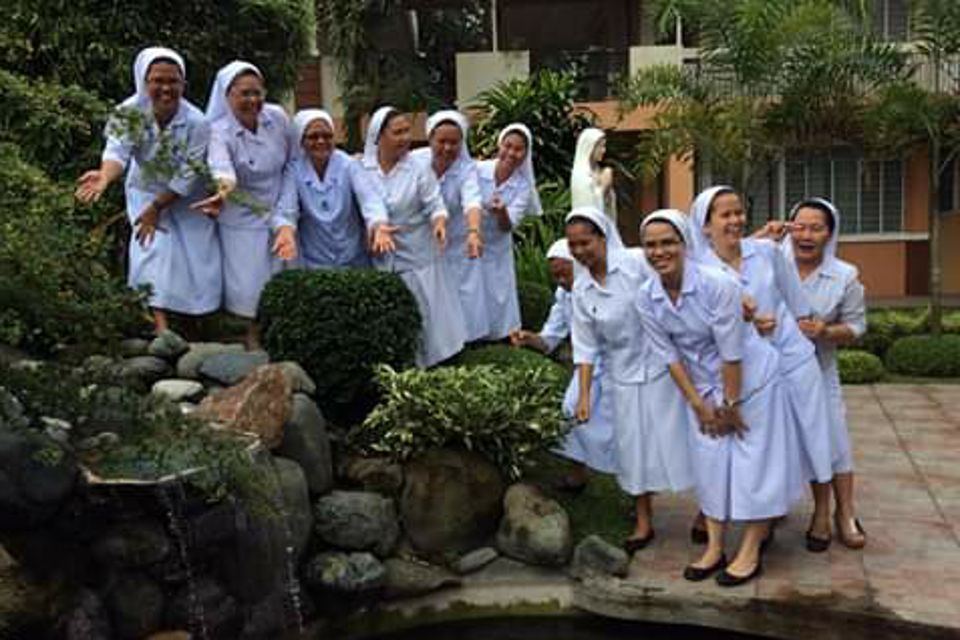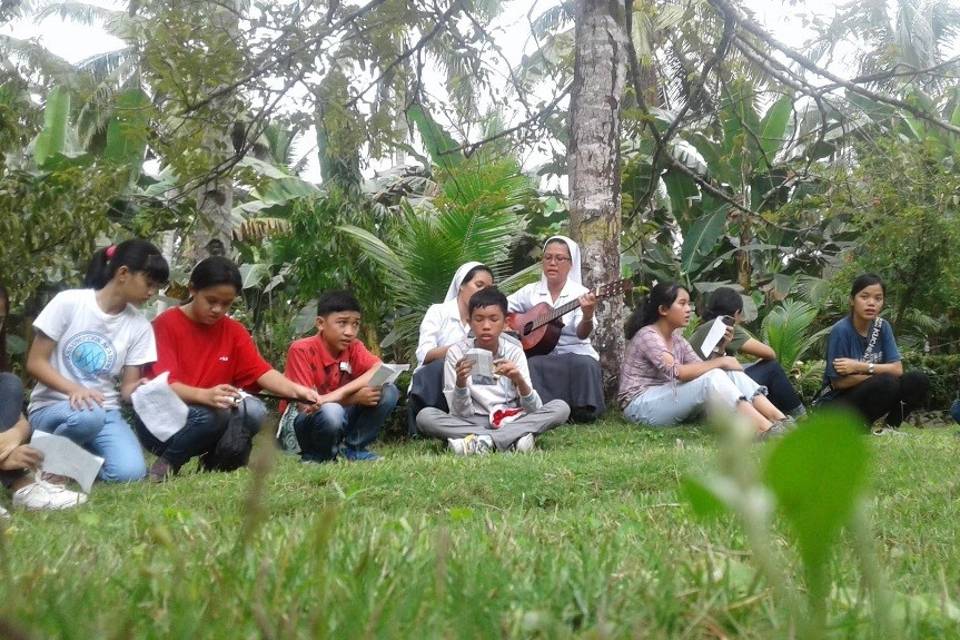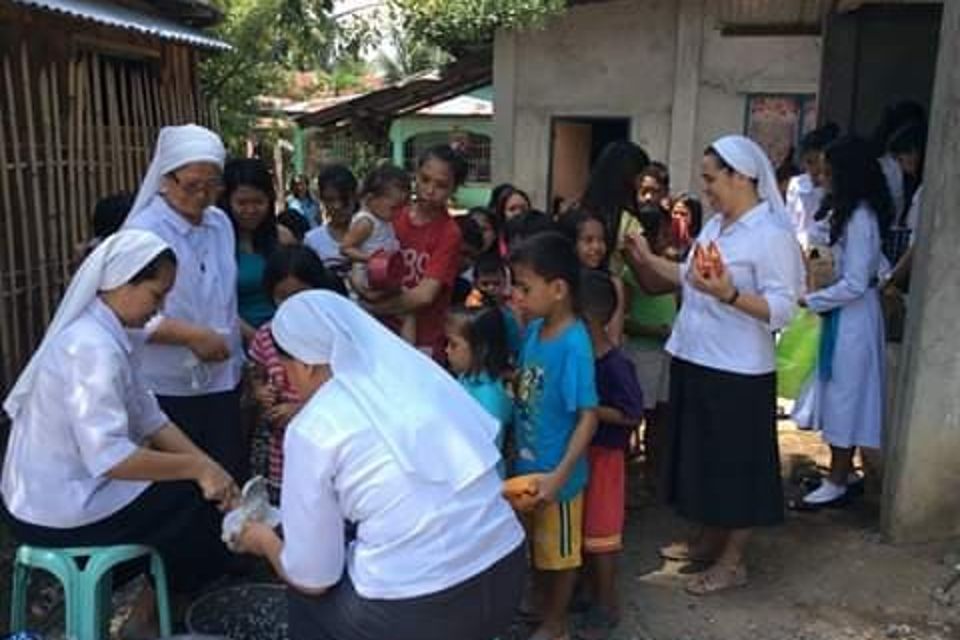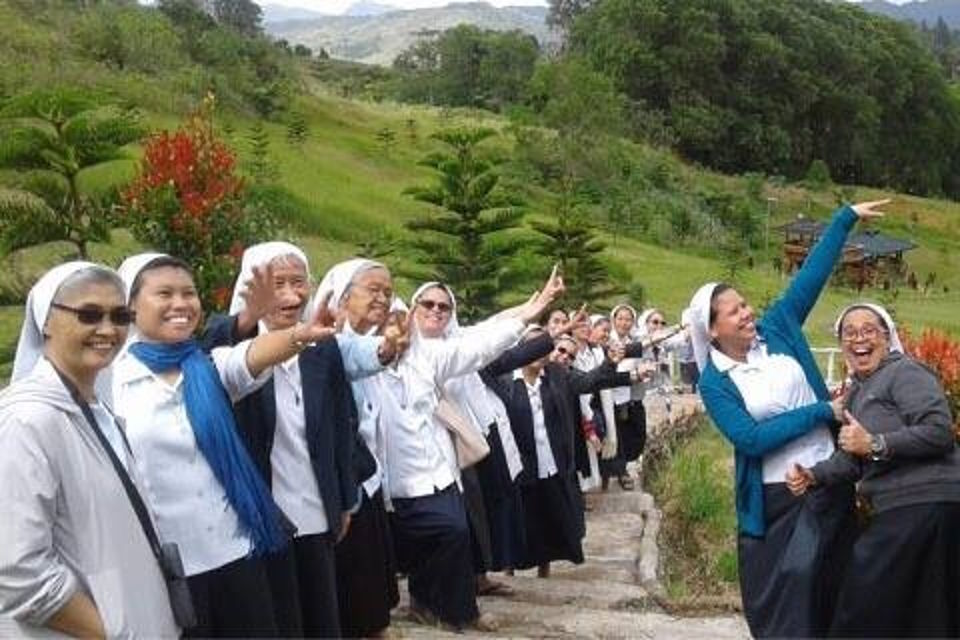Daughters of Mary of the Assumption (fma): Bearing Witness to Jesus Christ with Joy and Simplicity
The Institute of the Daughters of Mary of the Assumption draws its origin from the apostolic trust given by its founder Louis Joseph Arthur Melanson to an association of volunteer teachers. In 1922, fourteen young women answered the invitation of Fr. Melanson, the parish priest of Campbellton, New Brunswick, Canada, to cooperate in the educational mission of the church in that city.
The institute began simply and quietly. Its specific goal is to instruct and to educate children particularly to teach catechetics in parishes to support Catholic schools. In 1956, Le Filles de Marie-de-l’Assomption was recognized by Rome as a congregational Pontifical Right. Characterized by its simplicity and joy, the institute draws the vitality of its ecclesial vocation from its apostolic spirit which is rooted in its devotion to Mary.
God manifested his call more clearly through the invitation of Msgr. Clovis Thibault, PME, the Administrator of Davao and of the PME Fathers, for the sisters to help the diocese in the work of Christian education among the youth in the part of the Philippines.
On May 7, 1951 the General chapter of the Institute decided to accept the challenge of foreign mission in the Philippines as an act of “thanksgiving to God and to the Blessed Virgin Mary for the favors obtained after its foundation.”
The first mission for the fma was the religious education of the children in Nabunturan. The Assumption Academy of Nabunturan is the first Catholic High School in the entire Compostela Valley. Henceforth, the sisters had a special affection for Nabunturan as a good soil that accepted the first seed of the fma mission in the Philippines.
From 1955 to 1995, the Philippine mission was blessed by the presence of several fma missionaries who give themselves generously and lovingly to the Christian formation and education of the Filipino.
In 1958, the First Filipina postulants were accepted. In 1959, the novitiate of the Congregation was opened in Davao City and in 1962, the first two Filipina sisters made their first profession of vows. From that time on every year, new candidates were accepted until there was a need in 1967 to transfer the novitiate house to Tagum, Davao del Norte.
In 1960, with the bright prospect for Filipina vocations, the fma Philippine Region was formally erected with Sr. Elodie Richard as the first Regional Superior.
The Filipino nation, known as a people “who love the Virgin Mary” became rich soil for the Marian Congregation. In 1996, the last of the Canadian missionaries left their homeland and entrusted the entire region to the Filipino sister’s leadership.
The Lifestyle of the fma is characterized by 3 fidelities lived in sisterly communion: “welcoming God as Lord of their lives; celebrating together the active presence of the Holy Spirit; and giving their lives for one another just as Jesus did.”
The apostolate of the congregation include Christian education in private and public schools, pastoral work, rural mission, theology and catechetical teaching, retreat work and apostolate to the detainees.
At present, the schools where the fma sisters serve in the Davao region are: Assumption College of Nabunturan, Assumption Academy of Compostela and Assumpta School of Tagum.
Sr. Angel Puerto, fma writes “Humanity is experiencing freezing moments due to the onslaught of Covid-19. As a result, our mission is challenged to seek new paths. Physical reaching out shifted more to the care for others beyond borders in just the tip of the finger through different media platforms. It is an arduous transition yet possible with God’s grace with Mary’s example of trust and hope. As daughters of Mary we always look on the silver lining beyond challenges for we believe that God has a greater call for us as this pandemic arises.”
The fma sisters continuously ponder on God’s will as revealed in the need presented to them to bear witness to Jesus Christ with joy and simplicity following the example of Mary and in docility to the Church through Christian education with special concern for the poor.
(The Davao Catholic Herald wishes to thank Sr. Maria Gilia Rosales, fma and Sr. Angel Puerto, fma for the assistance in the making of this article.)






No Comments